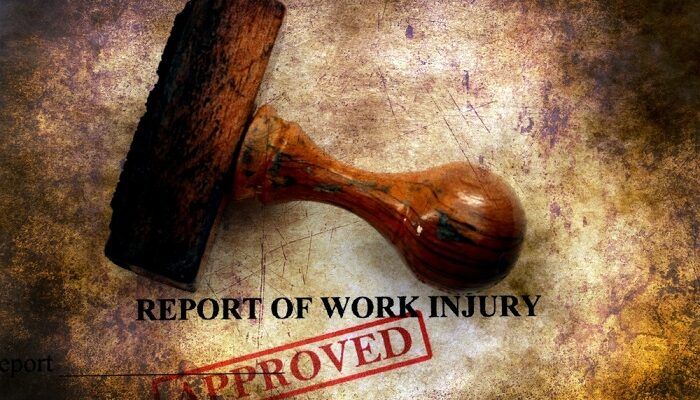A large part of the labor market is the occupation of Professional Cleaners. They are also referred to as Commercial Janitors. The Janitorial Occupation is susceptible for a variety of work injuries and occupational illnesses. Janitorial work presents unique risks for work injuries for those within the field.
This article will discuss Janitors, Janitorial Tasks, Industrial injuries and Occupational Illnesses that are prevalent within the Occupation, and the barriers that Janitors have with respect to filing claims.
What are Janitors?
Janitors perform a variety of maintenance tasks a variety of facilities. They use a multitude of tools and chemicals to perform their jobs. They can engage in a large variety of repetitive physical tasks, ie. sweeping or mopping.
Janitors can work at institutions such as schools, hospitals, parks, and prisons.
Janitors can work in commercial buildings such as shopping malls, and they can work in residential properties.
What Are Janitor’s Risks of Industrial Injury?
Each type of facility can present unique risks of work injury for Janitors.
For example, hospitals and medical facilities can have significant amounts of potentially infectious biological material present. Schools can have issues relating to mold exposure.
Further, the physical activities of being a Janitor may cause work injury.
What Types of Injuries Do Janitors Sustain?
There are a variety of work-related orthopedic injuries. These injuries relate, in part, due to the fact that “Janitorial work is repetitive and requires bending, twisting, and other motions that can lead to or exacerbate musculoskeletal disorders, such as arthritis” Using Behavioral Risk Factor Surveillance System Data as an Occupational Health Profile Washington State Janitors, 2011 to 2017 Anderson, Naomi J. MPH; Marcum, Jennifer L. DrPH Journal of Occupational and Environmental Medicine: September 2019 – Volume 61 – Issue 9 – p 747-753 doi: 10.1097/JOM.0000000000001652
Also, Janitors may sustain respiratory injuries relating to the cleaning chemicals that they use. Further, they may sustain dermatological injuries due to wet work.
What Are the Injury Rates for Janitors?
In a Washington State Study, it was noted that “[t]he prevalence of self-reported work-related injuries in the past year was higher than that of all others …. Analyses of WC data indicate that work-related injury risk may be higher for the industry group containing Janitors than other industries2 overall and in several injury types, with women at particularly high risk.” Using Behavioral Risk Factor Surveillance System Data as an Occupational Health Profile Washington State Janitors, 2011 to 2017 Anderson, Naomi J. MPH; Marcum, Jennifer L. DrPH
Journal of Occupational and Environmental Medicine: September 2019 – Volume 61 – Issue 9 – p 747-753 doi: 10.1097/JOM.0000000000001652
Thus, the workers’ compensation industry both has a concern over janitorial injuries as well as an understanding that work injuries are common. Thus, Risk Management handling Janitorial claims will work hard to manage these claims. This can be done with respect to reporting requirements. It can also be done with respect to return to work issues which can include modified work.
Do Janitors Have Emotional Issues?
Yes. Janitors, in the study, reported “being diagnosed with a depressive disorder ..significantly higher and has been reported previously. Using Behavioral Risk Factor Surveillance System Data as an Occupational Health Profile Washington State Janitors, 2011 to 2017 Anderson, Naomi J. MPH; Marcum, Jennifer L. DrPH Journal of Occupational and Environmental Medicine: September 2019 – Volume 61 – Issue 9 – p 747-753 doi: 10.1097/JOM.0000000000001652
While this finding did not address work-relatedness, it is possible that the depressive disorder may be in party work-related in nature and give rise to a workers’ compensation claim.
Can Shift Work Impact Janitors?
Yes. Shiftwork has been connected to various medical conditions.
Shiftwork can cause issues of inadequate sleep. Inadequate sleep can lead to other health issues.
Do Janitors Have Barriers in Filing Workers’ Compensation Claims?
Yes. There is some concern as to whether all janitor work injury claims are filed. As noted in the study, “[l]ow-wage, immigrant, and/or Hispanic worker populations, including many Janitors, may also not be aware of the WC system (or how to navigate the system, if they lack internet access) or of their right to seek medical care for an occupational injury or illness. Janitors may also face barriers to reporting an injury to their employer, such as fear of consequences. Using Behavioral Risk Factor Surveillance System Data as an Occupational Health Profile Washington State Janitors, 2011 to 2017 Anderson, Naomi J. MPH; Marcum, Jennifer L. DrPH Journal of Occupational and Environmental Medicine: September 2019 – Volume 61 – Issue 9 – p 747-753 doi: 10.1097/JOM.0000000000001652
If a Janitor is concerned about their employment situation if they claim a work injury, it is important for them to seek legal counsel to discuss their concerns to make a determination as to whether they should file the claim.
What if I Need Advice?
If you would like a free consultation regarding workers’ compensation, please contact the Law Offices of Edward J. Singer, a Professional Law Corporation. We have been helping people in Central and Southern California deal with their workers’ compensation cases for 27 years. Contact us today for more information.

